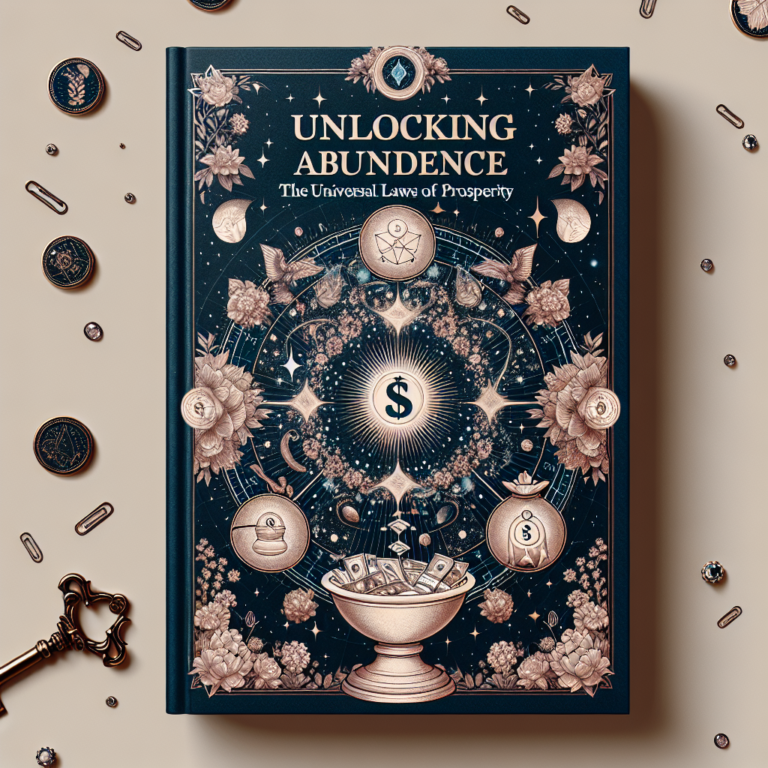In an increasingly complex world marked by rapid technological advancements and social challenges, cultivating creativity has taken center stage as a critical driver for progress. However, the relationship between creativity and ethics—particularly the concept of karma—often remains underexplored. At its core, karma is the principle of cause and effect, suggesting that our actions, whether good or bad, will return to us in some form. When we consider this principle in the context of creative endeavors, an intriguing synergy emerges: good actions can foster innovative solutions. This article delves into the intricate interplay between karma and creativity, revealing how ethical behavior can lead to profound creative breakthroughs.
Understanding Karma: A Brief Overview
Karma originates from ancient Indian philosophies and is found in various forms across numerous cultures and religions. At its most basic level, karma posits that every action has consequences. It is not just a moral idea but a cosmic law that connects actions to their outcomes. Positive actions lead to favorable results, while negative actions yield unfavorable consequences. This can often be seen in personal relationships, social interactions, and even in the realms of business and innovation.
In the context of creativity, karma suggests that our actions—especially those benefiting others—can create an environment conducive to innovative thinking. When individuals cultivate goodwill, collaboration, and ethical practices, they contribute to a creative landscape that inspires new ideas and solutions.
The Connection Between Good Actions and Creativity
- Creating Positive Work Environments
One of the most straightforward ways in which good actions enhance creativity is through the development of positive work environments. Research consistently shows that psychological safety—where employees feel safe to express their ideas without judgment—is a crucial factor for fostering creativity. Organizations that promote kindness, respect, and cooperation create a supportive atmosphere where individuals are more willing to take risks, share innovative ideas, and collaborate with others.
Moreover, when leaders demonstrate ethical behavior and responsibility, they set a precedent for their teams. This positive cultural shift encourages individuals to not only think outside the box but to do so collaboratively. An ethical work culture can lead to increased job satisfaction, higher retention rates, and a greater overall commitment to creative endeavors.
- Encouraging Collaboration and Networking
Karma reveals itself through the networks of human relationships we build. Engaging in good actions—whether through mentorship, volunteering, or simple acts of kindness—creates stronger professional connections. These relationships are vital for sharing ideas and resources, leading to innovative solutions.
For instance, in collaborative projects, diverse perspectives often yield richer outcomes. Individuals who embrace an ethic of generosity and goodwill are more likely to open up their networks, providing access to various ideas, skill sets, and experiences. This collaborative synergy is where creativity thrives—when various minds come together, innovation flourishes.
- Stimulating Empathy and Understanding
Empathy is at the heart of creativity. Good actions often stem from a place of understanding and compassion, driving individuals to consider the perspectives and needs of others. When we cultivate empathy, we can better grasp the complexities of problems faced by individuals and communities, which can lead to more innovative and user-centered solutions.
Design thinking, for example, is a creative problem-solving methodology centered around empathy. It urges innovators to engage deeply with the end-users, identifying their pain points and ideating solutions that address genuine needs. When individuals approach their work with a karma-driven mindset, they are more likely to develop solutions that resonate with real-world challenges, leading to effective and impactful innovation.
Real-World Examples of Karma and Creativity in Action
While the principles of karma and creativity may seem abstract, numerous real-world examples showcase how ethical actions lead to successful creative outcomes.
- Social Enterprises
Organizations that operate under a social enterprise model epitomize the synergy between good actions and creativity. Companies like TOMS Shoes and Warby Parker integrate their social missions into their business models, contributing to positive social change while fostering a culture of innovation. TOMS, for instance, popularized the "one for one" model, where each pair of shoes purchased supports the donation of shoes to children in need. This model not only addresses a humanitarian need but also inspires creativity within the organization. Employees are encouraged to think outside the box to expand the model and make broader social impacts.
- Tech Giants and Ethical Practices
Silicon Valley has become synonymous with creativity and technological innovation. Yet, companies like Google and Microsoft also exemplify how ethical practices can lead to groundbreaking ideas. Google’s commitment to sustainability and social responsibility has led to innovations like their renewable energy initiatives and plans to operate completely on renewable energy. By integrating positive actions into their business strategies, these companies spur creative thinking that leads to viable and innovative solutions for both their business and society.
- Grassroots Movements
Grassroots movements often emerge from the genuine desire to address social injustices and community needs. These movements showcase the power of collective good actions in promoting creativity. Take, for instance, the rise of community gardens in urban areas. These initiatives not only beautify neighborhoods but also foster community connections, educate people about sustainability, and inspire innovative practices in urban agriculture. The creative solutions that stem from these grassroots efforts show how ethical actions can transform communities.
Developing a Karma-Driven Creative Mindset
Cultivating a mindset that embraces the connection between karma and creativity is essential for individuals and organizations looking to innovate. Here are some strategies to foster this mindset:
- Practice Self-Reflection
Encouraging self-reflection can help individuals understand the impact of their actions. Reflecting on questions such as "How did my actions affect others?" or "What are the long-term consequences of my decisions?" can foster greater awareness and inspire more ethical behavior. This practice can lead to enhanced empathy and a more profound understanding of the creative process.
- Emphasize Collaborative Learning
Organizations should prioritize collaborative learning opportunities that encourage employees to share their experiences and insights. By creating spaces for open dialogue, brainstorming sessions, and cross-functional collaborations, businesses can foster a culture of innovation rooted in good actions and mutual respect.
- Reward Ethical Behaviors
Recognizing and rewarding good actions can reinforce ethical behavior within teams. Acknowledging individuals who demonstrate integrity not only boosts morale but also sets a standard of conduct that encourages creative thinking. This reinforcement creates a culture of accountability and respect.
- Engage in Community Service
Knowing the needs of the community can inspire creativity in meaningful ways. Encourage employees to engage in community service initiatives that resonate with their interests and values. Such experiences foster empathy and provide real-world insights, which can spark innovative ideas for solving community challenges.
Conclusion: A Creative Future Built on Good Karma
As we reflect on the intricate connections between karma and creativity, it becomes increasingly clear that our actions—both good and bad—play a pivotal role in shaping the creative solutions that emerge in our lives and societies. By embracing a mindset that prioritizes ethical behavior, collaboration, and empathy, we open the door to innovative solutions that not only benefit individuals or organizations but also contribute to the greater good.
In today’s world, where challenges seem to multiply by the day, a renewed focus on kindness, understanding, and positive action will be essential for cultivating the creativity necessary to navigate these complexities. By taking conscious steps toward ethical behavior, we can create a more innovative future—one powered by good karma.
In an age defined by the need for innovative solutions, it is the conscientious actions we take today that will shape the creative landscapes of tomorrow. Ultimately, creativity thrives in environments where good karma flourishes, and with a commitment to this principle, we can harness the power of collective innovation for a better world.





